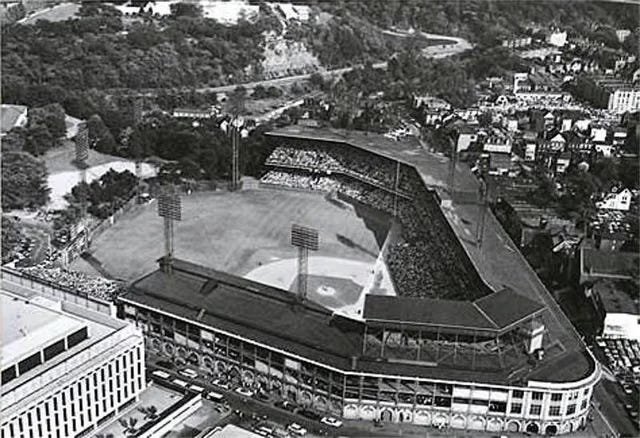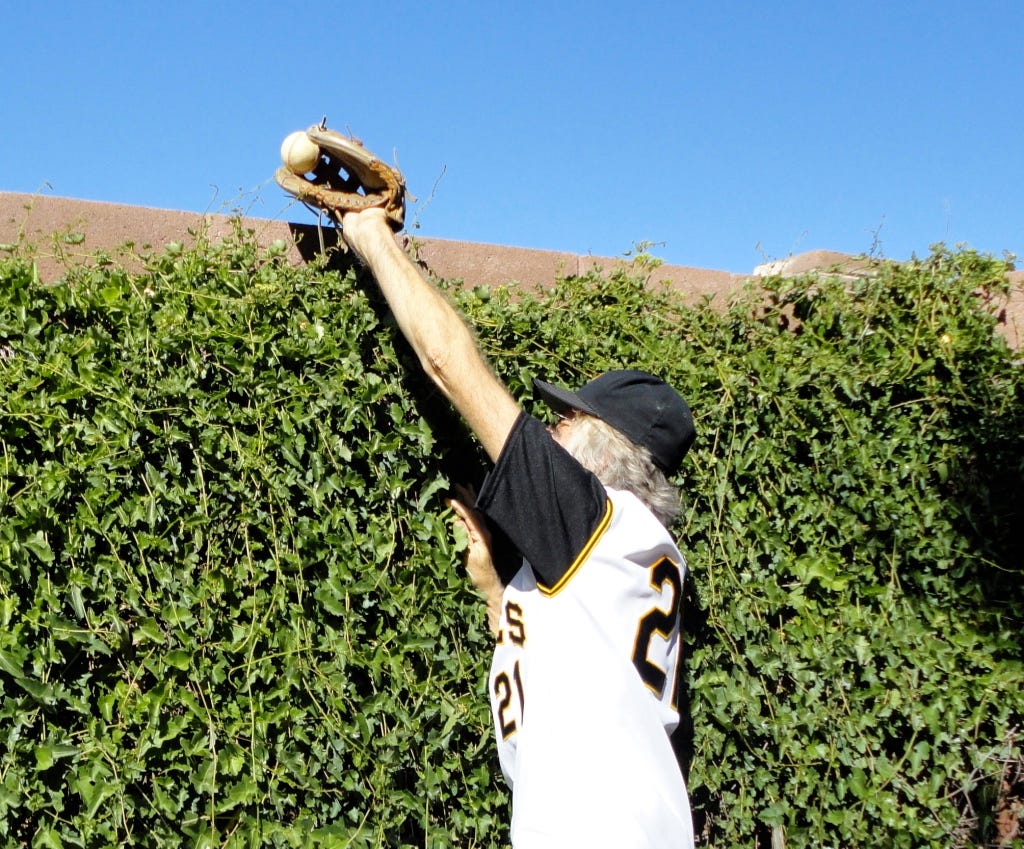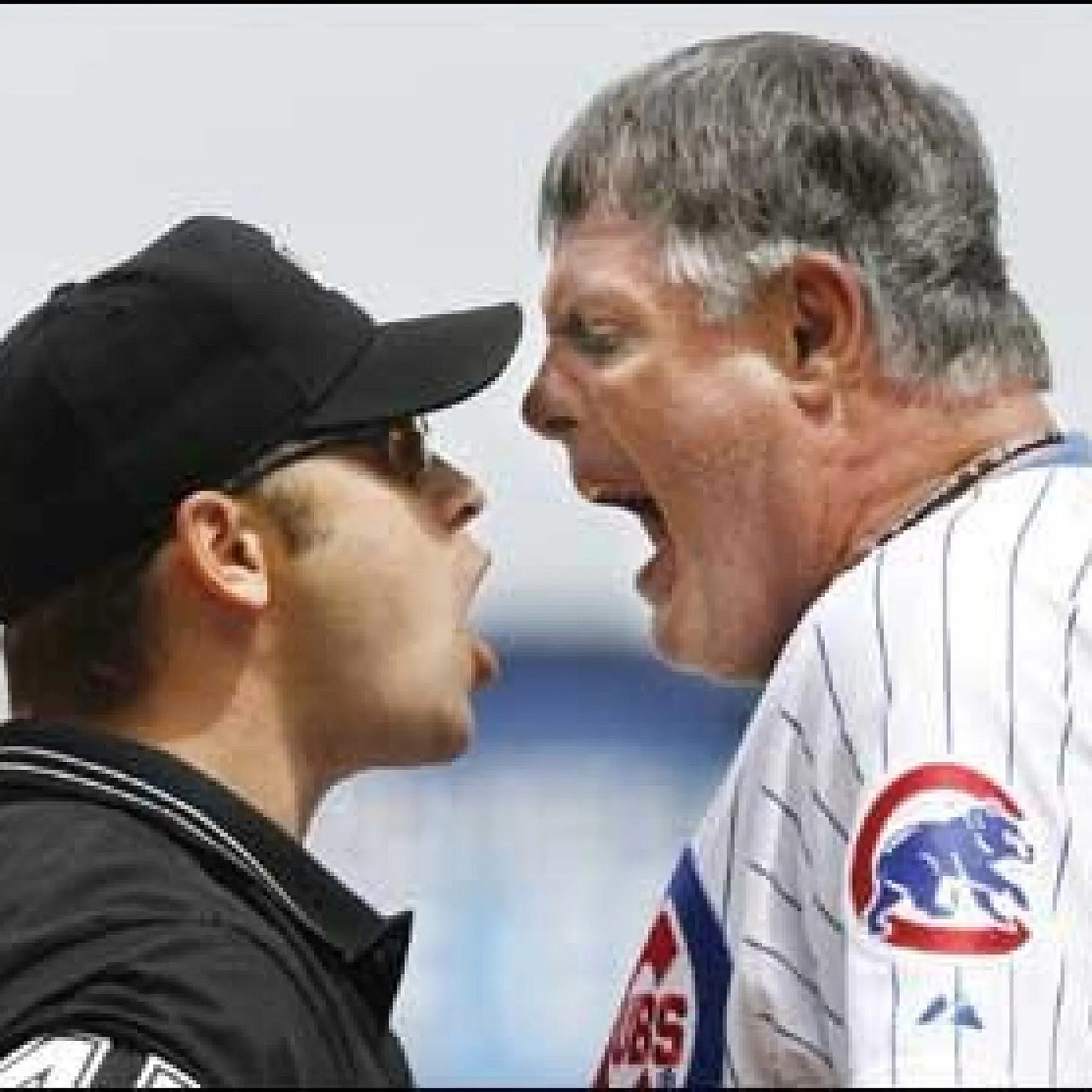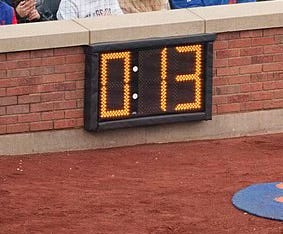A Preamble
This post is about baseball, my favorite sport. To my regulars who couldn’t care a whit about baseball or sports in general, I hope to not get too far into the weeds with statistics and jargon and analytics, although there might be a little of that sprinkled throughout this post. I also hope to provide the same wit and wordsmithing that you’ve come to know and love from my other essays. There may even be some of my trademark rantiness that has proven to be so popular. My goal is always to write something worth reading, no matter the subject. Sometimes it’s a challenge, but that’s always the goal.
The First Major League Game I Saw In Person
I can remember a lot about the first major league game I saw in person, although I did look up the box score for some of the details. My dad took my brother and me to old Forbes Field in Pittsburgh to see the Pirates take on the Los Angeles Dodgers. The Pirates won 5-1 behind a fine pitching performance from Bob Veale. The losing pitcher was future Hall of Famer Don Sutton.
Several things about that day still reside in my memory. I remember seeing the beautiful green grass of the infield for the first time as we emerged from the area behind the grandstands. It was a brilliant shade of green that I had never seen before. I wanted to run down there and catch some popups on that perfectly manicured, beautiful green grass.
It was a warm, sunny August day, however we were protected from the sun by the upper deck hanging over us. We were between 3rd base and home, and I recall the view being pretty good except for the large steel girder near us obstructing part of the field.
This particular Sunday happened to be Helmet Day, so my brother and I each received a replica Pirates batting helmet as we entered the ballpark. I remember we each got a big Coke, and that once we made it our seats, I was parked there for the rest of the game. I did not leave to get a hot dog or a program or to use the restroom. I did not want to miss anything. I wanted to watch everything the big leaguers did.
One other memory that stands out is the disappointment I felt when I learned my favorite player, Roberto Clemente, was not going to be playing that day. Instead, Gary Kolb would be patrolling Clemente’s usual spot in right field. I was excited to see the great Clemente in person, but instead we got Gary Kolb. No disrespect but . . . Gary Kolb?? We did see future Pirate Hall of Famers Willie Stargell and Bill Mazeroski, though.
Not seeing Roberto Clemente was a big letdown, but being at Forbes Field to see real big leaguers play on that brilliant green grass with my own eyes, made for a very exciting day. One I haven’t forgotten.
Baseball Was Better Back in the Day
You know, I can’t stand old fossils who bloviate on how things were so much better in the old days. But, in the case of baseball, the game was much better in my youth. Batters went up there to swing the bat and put the ball in play, not stand there and take pitch after pitch in hopes of getting a walk.
Most pitchers back then had a different philosophy, too. They tried to get batters out as efficiently as possible, meaning they relied on getting batters out with pitches that were well placed, and did not try to throw every pitch as hard as they could. In other words, they learned how to pitch, whereas most of today’s pitchers give max effort on every pitch, throwing as hard as they can for as long as they can. They are throwers, not pitchers. In my opinion, this is why there are so many injuries to pitchers now, despite the fact that they pitch way fewer innings than the old-timers did.
The current emphasis on the “Three True Outcomes” (walk, strikeout, home run) has been terrible for the game. Granted, it is exciting to watch a guy launch a 450 ft tater. But, the only players moving on a home run are the pitcher and the batter (and the baserunners, if any). Whereas on a sacrifice bunt, for example, multiple players are moving in multiple directions. Putting the ball in play, even if it’s just a 32-hopper that barely makes it to the outfield, causes movement on the field, which is way more interesting than watching the pitcher and catcher play catch all game long. Perhaps the way the game is played now is analytically more efficient than it used to be, but it was a much more entertaining product in the olden days.
(Check out this link: https://www.tdabaseball.com/post/an-analysis-of-a-three-true-outcome-hitter for more info on Three True Outcomes.)
Here’s That Rant You’ve Been Waiting For
The Designated Hitter has been an abomination since it was first instituted 50 years ago. Get rid of it. Today. I understand that no one wants to see a disinterested pitcher take a few feeble swings then head back to the dugout. Better to have someone at the plate who actually has a real chance at making contact, right? Wrong. First off, it was exciting when the pitcher got a hit or walk and had to run the bases. It was something unusual when it happened. Baseball needs more special moments like that, not fewer.
Plus, many fans enjoyed the strategy involved when pitchers had to hit. When to bunt, or pinch hit for the pitcher, or walk the #8 hitter, or double switches – instances where the fan could be engaged in the strategic part of the game should be prized. The DH eliminated all of that. For what? Another guy in the lineup hitting .230?
Some folks might ask, “Well, Norm, what about the great players whose careers have been extended by the DH?” I know how cold it sounds, but if a player is too old or injured to play in the field, then perhaps he should step aside in favor of someone who can. It’s the theory of natural selection, in a baseball sense.
I saw some statistic that said the DH adds around two runs a week to the games. To diehard, knowledgeable fans, that is pointless. To casual fans, that number is so small, it is meaningless.
I get that teams don’t want their high priced pitchers getting hurt running the bases. I don’t know what the exact numbers are, but I do know that pitchers are babied now more than ever. And, they’re still getting injured a lot. Limiting their workloads doesn’t seem to make any difference.
All baseball players used to have to play a position and take a turn at the plate. I always liked that part of the game. I believe it was a big mistake to make pitchers be only pitchers, rather than baseball players who pitched.
I hate the DH. And I always will.
Using Technology to Officiate Baseball is Wrong
Surprise, surprise, I don’t like replay reviews, either. Here’s what replay does: (a) It slows the game down, that’s obvious. (b) What’s worse, though, in the zeal to get the calls correct, the human element is being legislated right out of the game. We used to get Earl Weaver and Lou Piniella and Leo Durocher and Billy Martin throwing tantrums out on the field. It was interesting and fun and exciting. Now, on a questionable play, we have a couple umpires with headsets and a techie standing around while somebody in New York makes a decision. It’s bland, boring, and colorless.
Errors have always been part of baseball. Umpires are going to mess up, just as players do. Get better umpires or give them better training, because getting the calls correct is important. But, arguments used to provide a bit of spice to the game, and once we get the ABS (Automated Ball-Strike System) in the big leagues to call balls and strikes (probably some form of it next year), there won’t be any reasons for arguing. No more nose to nose, spit and expletive-laden screaming matches, no more dirt-kicking, arm-waving, hat-tossing brouhahas.
The word “brouhaha“ will fade into oblivion (if it hasn’t already).
The use of technology to officiate a baseball game makes for a less passionate and less colorful game. Which is the exact opposite of what baseball needs.
Proving I Do Not Hate All New Ideas
I mentioned in a previous post that I hated the idea of a pitch clock when it was instituted last year. Because there are no clocks in baseball! But, I was way wrong on that. The pitch clock worked great. The batter could no longer step out after every pitch to adjust his batting gloves, and cinch up his belt, and take his helmet off and wipe his brow, and do whatever other time wasting things they used to do. Pitchers could no longer walk around the mound, and fiddle with the rosin bag, and paw at the dirt, and shake off sign after sign after sign from the catcher. The pitch clock squeezed a lot of dead time out of the game. Keeping the game moving is good for players and fans.
Why I’m Writing About Baseball
I’ve been following baseball closely since I was 8 or 9 years old. We used to listen to the great Bob Prince call Pirate games on a little transistor radio. (Remember those?) I would carefully study the baseball statistics printed in the Sunday newspaper, and of course, I collected baseball cards. (A pack of baseball cards came with a terrible stick of gum that I used to throw away until my dad caught me doing it. He didn’t like us to be wasteful. I learned to throw it away when he wasn’t around.)
I played baseball as a kid and through high school. At my absolute athletic peak, I was a mediocre player. I wasn’t the best player on the team and I wasn’t the worst. I always used to say I was just good enough to be disappointed when I did not do well. I would have a flash of success, followed by a lot of failures.
But, that’s the way baseball is. It is a sport fraught with failure. For a long time, I thought if I could get one more at bat, or make one more great play on that field of beautiful green grass, I would turn the corner and become a consistently good player. But usually around the corner was more experience dealing with failure. However, I still loved the game, even if it did not love me back.
I still do.
To my grand slam subscribers, thank you for your support.
And, don’t be afraid to scroll to the bottom and hit that Like button! (But, only if you really mean it.)
Do you have something to say about It’s Baseball Season? Well, then . . .












This is was fun, Norm, not to forget "timely". I loved Leo. I grew up watching the Cubbies, and Leo was the most colorful person on the team! I watched just to see what extraordinary thing he would do, or more specifically 'say' when he lost his mind. Kicking a base was a good one, or throwing just about anything on the field out of the dugout. He was like a cartoon in full color and animation! I think they quit screaming into each other's faces when too many umps were eating garlic sandwiches at lunchtime. Ugh! That would back off even Leo...and that was probably their secret plot.
I so agree on pitchers just trying to throw each pitch harder, especially when the crowd could see the MPH on the scoreboard to screetch at each 100+ toss. Lots of good pitchers were lost to early unnecessary season ending surgeries.
I remember the gum with the BB cards. It was flattened between the cardboard cards and tasted just like cardboard. Nasty and boring, however, it was coated in a small amount of sugar so I chewed it and spent many days in dentist's offices as a youngster due to the various cavities that bubble gum afforded me.
I loved going to the Cub's games, though very few. The best part was sharing a beer that was passed down the aisle occasionally...well, quite often, actually, as in Chicago the fans felt they were at a family picnic and everyone shared each other's beer as they were passed down the isle. It was a tradition. I was anywhere from 10 to 16 years old during those good old days of Pabst Blue Ribbon.
And who needs a DH anyway? I always wondered who those guys were when they got in the batter's box, as in "Daddy, who is that guy???"
Thanks for the memories...and the fact that I can still remember!
Thanks Norm,
I also like digging in the dirt. That's the part that's cathartic.
Given the current situation with food prices, I have also decided to do some sustenance planting. Your wife would be the perfect person to talk to. I plan on planting fruits, vegetables, and nuts this year to help curb some of my grocery costs. Although, it can be pricey setting up a garden from scratch. The cost of top soil, plants, and fertilizer add up really quickly.
Take care,
Sarah